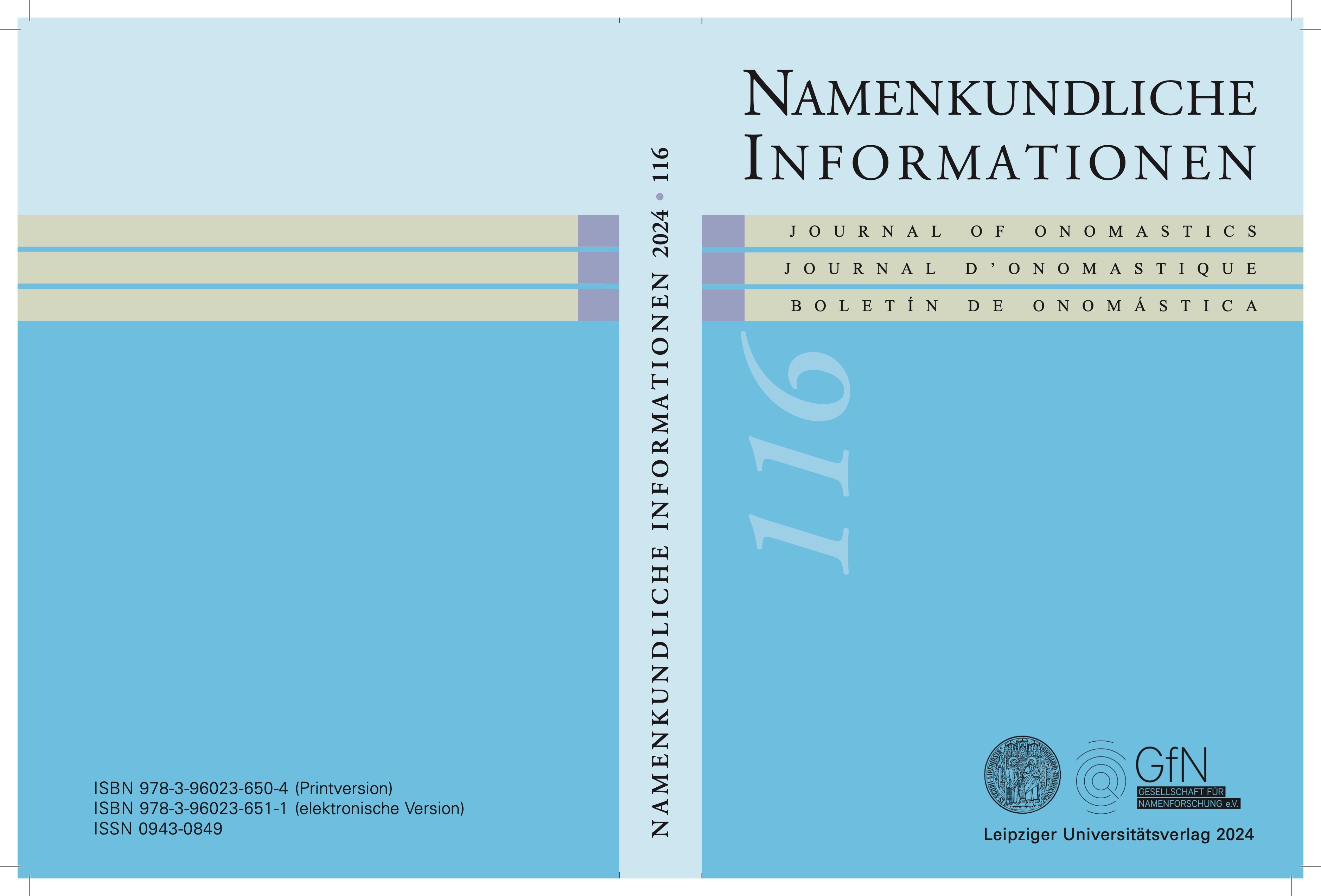Socio-cognitive onomastics and mobility: Names for (groups of) people in Malacca and Macau
DOI:
https://doi.org/10.58938/ni759Abstract
This article explores terms for individuals and groups, such as ethnonyms, in a multilingual context shaped by mobility: the former Portuguese overseas empire or Estado da Índia, particularly the harbour cities of Malacca and Macau. The focus lies on a historical analysis with a scope from the early 16th to mid-20th century. From the standpoint of Cognitive Linguistics, the analysis revealed a gradient transition between ethnonyms (and sometimes glottonyms) and class labels. Practices for naming a colonial Other rely on conventional lexemes applied metaphorically and metonymically to new social actors. Often, these practices are strategies of conscious distinction between one’s in-group and the out-group. Furthermore, perceptions of colonial Others encompass prejudices regarding their language use, which affects one’s own language choice in cross-lingual interactions. The etymological analysis presented here emphasises the relevance of contextual life-worlds, as seemingly synonymous designations for people may entail disparate semantics.]
Downloads
Published
Issue
Section
License
Copyright (c) 2024 Raphael Dohardt

This work is licensed under a Creative Commons Attribution 4.0 International License.
Es findet keine exklusive Übertragung von Verwertungsrechten (Copyright Transfer) an die Zeitschrift statt. Die Autor/innen stimmen bei Manuskripteinreichung der Veröffentlichung unter der Lizenz Creative Commons Attribution 4.0 International zu.


